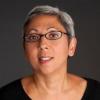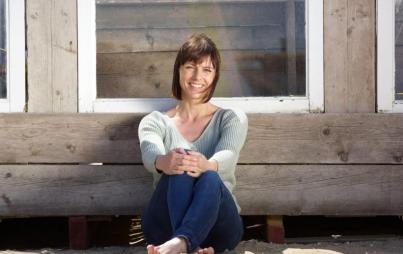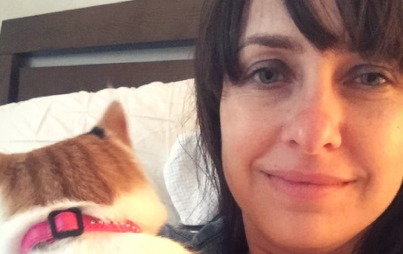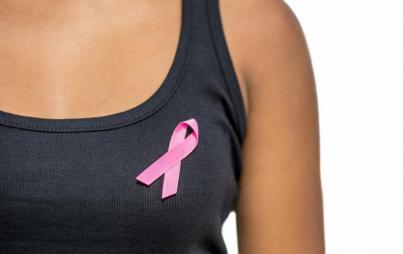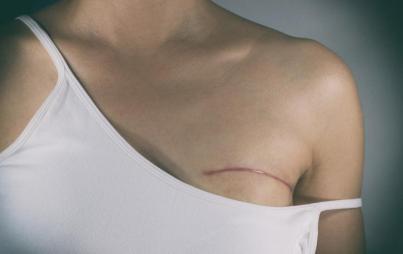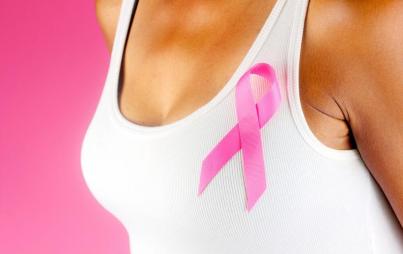
Credit: Thinkstock
A new U.S. Preventive Services Task Force recommendation on mammograms ensures more women will die of breast cancer.
This year, 40,000 women will die of breast cancer. Yet if the U.S. Preventive Services Task Force (USPSTF) has its way, even more women will die of this terrible disease.
How? If the USPSTF officially declares, as proposed, that it no longer recommends mammograms for women under 50—a change from the current recommendation that screening tests begin at age 40.
If approved, this recommendation will adversely affect millions of women. And I have a feeling that if we were talking about a disease that affected men's testicles, we wouldn't even be having this argument.
Six years ago, in 2009, the Task Force originally said that women under age 50 may not need to get routine mammograms. Congress was understandably up in arms. It was perhaps the one thing that Democrats and Republicans agreed upon: that the USPSTS recommendation was potentially fatal.
Back in 2009, Congress passed legislation to override the group's recommendation, and the Task Force agreed to reexamine its guidelines. Last week, on April 20, the updated draft of the group's guidelines repeated its earlier recommendations—that the USPSTS would not issue blanket recommendations for mammograms for women under age 50.
The draft of the recommendation states:
- The decision to start screening mammography in women before age 50 should be an individual one. Women who place a higher value on the potential benefit than the potential harms may choose to begin screening between the ages of 40 and 49 years.
- A screening mammography should happen every two years, instead of the current one year.
- The current evidence is insufficient to assess the balance of benefits and harms of screening mammography in women in this age group.
As a breast cancer survivor, I find the Task Force's recommendations both infuriating and unimaginable. I was diagnosed with breast cancer through a routine yearly mammogram at age 53. At that time, the malignant mass was small (1 cm), but how large would it have grown had I waited even longer? Would it have spread to my lymph nodes and metastasized to other organs like my lungs and liver?
I know many women who were diagnosed with breast cancer before the age of 50. Only 11% of the women who get breast cancer are under 44. Only.
Of the 231,840 new cases of invasive breast cancer estimated to occur in 2015, that means roughly 25,502 cases will occur in women under the age of 44. That's like a town the size of Asheboro, North Carolina, suddenly being wiped off the map. It's a breathtaking number, especially if you are among those some 25,000 women—or if one of them is your wife, your mother, your daughter, your friend, or someone you love dearly. Someone whose death might be entirely preventable by a simple test.
In an NPR interview, Debbie Wasserman Schultz, a Congress member from Florida who also chairs the Democratic National Committee, said, "The Task Force is essentially handing women a death sentence . . . We know there are women who will die if this recommendation goes through."
Wasserman Schultz knows this firsthand because she was diagnosed with breast cancer in 2007, at age 41. She makes no bones about the fact that she might not still be here today if not for early detection—and a pre-age-50 mammogram.
It's disheartening that medical experts say one thing while the U.S. government says another entirely. Both the American Cancer Society and the American College of Radiology are sticking to their guns about the benefit of yearly mammograms beginning at age 40.
Moreover, it's only a matter of time before insurance companies jump on the bandwagon and stop covering mammograms for women under age 50. The American College of Radiology says that the USPSTS's recommendation could eliminate mammogram insurance for millions of women and cost thousands of lives.
Even more distressing is the fact that breast cancer in pre-menopausal women is traditionally more aggressive and fast-moving.
At a recent SHARE meeting (a nonprofit support group for women with breast and ovarian cancer), members were disturbed by news of the USPSTS's proposed recommendations. Agnes, the group's facilitator and a 25-year breast cancer survivor, said that breast cancer is so prevalent in women under 50 that SHARE has a designated video-conference support group for younger women.
"What's the reasoning behind the group's recommendation?" Agnes wondered. "Expense? Exposure to radiation, which is minimal in today's mammograms? Two million women have survived breast cancer. I find the Task Force's potential recommendations dangerous."
So what is the reasoning behind the decision?
In a USPSTS video, Dr.Kirsten Bibbens-Domingo, vice chair of the USPSTS, says of women in their 40s: "Because the risk of developing breast cancer is lower in this age, the likelihood of benefiting from screening is smaller and the risk of harm is greater than for women over age 50."
Hmmm . . . tell that to women like Renée, who was diagnosed at 39. Or Chyllene, who was diagnosed at age 33—her cancer developed while she was pregnant and wasn't spotted until after her daughter was born. Or Kiara, who was diagnosed at 43. Or Susan, who had just celebrated her 30th birthday when she was diagnosed. If anything, we should start doing mammograms at a younger age, not an older one.
Dr. Kirsten Bibbens-Domingo goes on to explain that "the most common harms are false positive screening exams that lead to additional tests and procedures . . . While some women do not mind the anxiety that accompanies a false positive mammogram, other women consider this a harm."
This is ludicrous. I don't know about you, but I'd much rather get a false positive, then find out it isn't cancer through subsequent testing, than not have a mammogram at all and find out that it's Stage 4 when a lump is finally discovered.
So, what can we do to keep the USPSTS off of our boobs? Write to Congress. Share this post with everyone you know. Make a big, giant noise until our voices are heard, our sisters are saved—and we retain the right to get squished before we turn 50.

